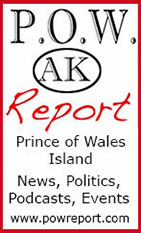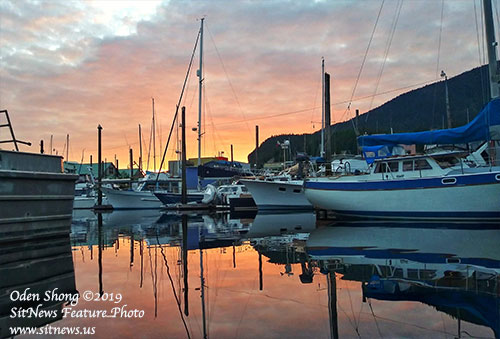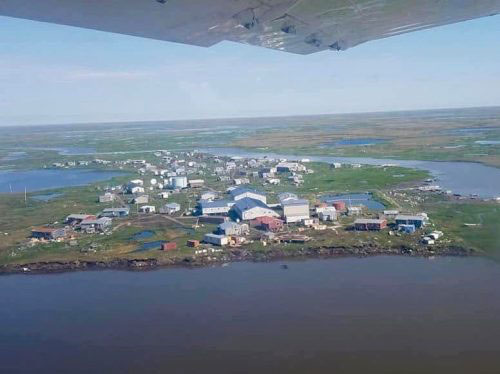




Weekly Specials
Online Shopping; Pickup or Delivery |
|












 Contact Contact 
 Webmail
Letters Webmail
Letters
 News Tips News Tips
 Copyright Info Copyright Info
 Archives Archives
Quick News
Search
 Alaska Alaska
 Ketchikan Ketchikan
 SE Alaska SE Alaska
Columns
- Articles
 Dave Kiffer Dave Kiffer
 Money Matters Money Matters
Historical
Ketchikan
 June Allen June Allen
 Dave
Kiffer Dave
Kiffer
 Louise
B. Harrington Louise
B. Harrington
Sports
 Ketchikan Links Ketchikan Links
Public Records
 FAA Accident Reports FAA Accident Reports
 NTSB
Accident Reports NTSB
Accident Reports
 Court Calendar Court Calendar
 Recent Filings & Case Dispositions Recent Filings & Case Dispositions
 Court Records Search Court Records Search
 Sex Offender Reg. Sex Offender Reg.
 Public Notices Public Notices
 Alaska Recall Alerts Alaska Recall Alerts
 Recalls.gov Recalls.gov
 AST Daily Dispatch AST Daily Dispatch
 KTN
Police Reports KTN
Police Reports
 Juneau Police Reports Juneau Police Reports
Weather,
Webcams
 Today's
Forecast Today's
Forecast
 KTN
Weather Data KTN
Weather Data
 AK
Weather Map AK
Weather Map
 AK Weathercams AK Weathercams
 AK Earthquakes AK Earthquakes

|
|

Friday
June 28, 2019

Sunset Reflections
Front Page Feature Photo By ODEN SHONG ©2019
|
|
Alaska: Governor vetoes $444 million from Alaska's operating budget; Eliminates 50% of state deficit By MARY KAUFFMAN - Alaska Governor Michael J. Dunleavy today signed the FY2020 budget with approximately $400 million in line-item vetoes. With an overall reduction in state spending of $678 million, the Governor’s actions today eliminate nearly 50 percent of the state’s deficit this year. Dunleavy says he hopes a “two-year process will put Alaska in a position of balancing the budget without new taxes or a reduction of the traditional Permanent Fund Dividend.”
After signing the operation budget, Governor Dunleavy spoke directly with Alaskans outlining the FY2020 budget. In his comments the Governor said, "The budget goals and priorities for my administration have been very clear: maintain and protect our reserves… expenditures cannot exceed existing revenues… the budget is built on core functions… and no additional taxes on Alaskans.
Dunleavy said, "But due to the legislature's limited action on reducing the deficit, today I've taken a number of important steps to balance the budget."
The Governor went on to say he identified approximately 400 million dollars from the budget that will be subject to his line item veto. "The state's fiscal reality dictated many of these changes"" said Dunleavy.
"These vetoes should not come as a surprise to Alaskans as they have been part of our proposal since February. Ultimately, the decisions that were made were difficult, but we feel that the State government will still be able to deliver essential services to Alaskans," stated the Governor.
"Additionally, after 151 days of work in Juneau, the Legislature still has significant tasks to complete, so beginning July 8, I have called the Legislature into special session in Wasilla to pass legislation that will pay a full statutory dividend to eligible Alaskans. Once they complete that task, they will need to properly fund a Capital Budget as well," stated the Governor. (Watch the video for the Governor's full comments)
Should the legislature decide to override the Governor's vetoes, it will take 40 votes to call a Joint-Legislative Session.
Alaska Senate President Cathy Giessel (R-Anchorage) responded to Governor Mike Dunleavy’s announced vetoes to the state’s operating budget in a prepared statement. “Over the past several years, the Senate has focused on reducing government spending. In making those reductions, we understand the importance of being careful to protect both the state’s economy and core services Alaskans count on, mandated by the Alaska Constitution," said Giessel.
Giessel said, “Protecting the Permanent Fund and prioritizing essential services were among the guiding principles of this Senate. It is those principles that will continue to guide us as we consider each of the vetoed budget items in the coming days.”
Several Senate Democrats also commented on the Governor's vetoes announced today and expressed their concerns.
“Governor Dunleavy simply doesn’t value public education in Alaska. The majority of his cuts cripple our University system - which should be a world-renowned leader in Arctic and global research, and takes away certainty for public schools, educators, and families,” said Senate Democratic Leader Tom Begich (D-Anchorage). “The consequence of Governor Dunleavy’s mission will be to drive young adults and families out of this state, which in turn will have a significant impact on our economy.”
“The University has been on the chopping block for the past four years. The legislature has made great strides in working with the University to cut costs but also make efforts to turn our University into a magnet for the best and brightest,”said Senator Scott Kawasaki (D-Fairbanks) . “Governor Dunleavy continues to exemplify his contempt for quality pre-K through University education in Alaska. We must shed this style of politics, unite around a common vision for Alaska, and come together to build a University we are all proud of.”
“Governor Dunleavy is continuing his war on seniors by completely defunding the Senior Benefits program that thousands of fixed low-income seniors use to buy groceries, medicine, and energy,” said Senator Elvi Gray-Jackson (D-Anchorage). “These are Alaskans who built this state, and I will work diligently with my colleagues to overturn this action and give seniors the surety they respectfully deserve.”
Senator Gray-Jackson- nor any other Senate Democrat - made any comment on cuts to Alaska Permanent Fund Dividends for the fixed low-income seniors which would amount to significantly more than the cuts to the Senior Benefits Program. The Alaska Senior Benefits Program provided as little as $76 per month ($912 annually) up to $250 each month depending on income. However, due to no funds in the program, the program suspended funds to those receiving $76 per month back in May 2019. No action was taken on this elimination by the Legislature. Under the Senior Benefits Program the lowest income seniors received between $2,100 to $3,000 annually. The income limits for each payment level were tied to the Alaska Federal Poverty Guidelines and are changed each year as the poverty level changed. The 2019 Alaska US Poverty Guidelines for income for one is $15,600 annually and for a family of two at $21,130. (For a family of 4, the 2019 guidelines set the poverty level in Alaska at $32,190). - More...
Friday PM -
June 28, 2019 |
|
Alaska: DOJ Declares Law Enforcement Emergency in Rural Alaska Pledging Over $10 Million in Funding Posted & Edited By MARY KAUFFMAN . - U. S. Attorney General William P. Barr declared a law enforcement emergency in rural Alaska under the Emergency Federal Law Enforcement Assistance Program today, making $6 million immediately available to the state of Alaska for critical law enforcement needs of Alaska Native villages. Recognizing that Alaska has the highest per capita crime rate in the country and the unique circumstances of Alaska’s geographical and jurisdictional landscape, the Attorney General authorized additional funding and several long-term measures to support village public safety and victim services.
The $6 million in emergency funding from the Office of Justice Program’s Bureau of Justice Assistance (OJP-BJA) will go toward hiring, equipping, and training Village Public Safety Officers (VPSOs), Village Police Officers (VPOs), and Tribal Police Officers (TPOs) working in rural Alaska, as well as for mobile detention facilities.
In addition, the Department of Justice Office on Community Oriented Policing Services (COPS) will award $4.5 million in funding for 20 officer positions, along with equipment and training, to Alaska Native grantees by the end of July.
The Office for Victims of Crime (OVC) and the Office on Juvenile Justice and Delinquency Prevention (OJJDP) will support Children’s Advocacy Centers (CAC) in rural Alaska’s major hubs, which provide wrap-around services, forensic interviews, and medical exams for child victims. OVC and OJJDP have identified up to $14 million in available funding for CACs in Alaska and the lower 48 states.
“In May, when I visited Alaska, I witnessed firsthand the complex, unique, and dire law enforcement challenges the State of Alaska and its remote Alaska Native communities are facing,” said Attorney General Barr. “With this emergency declaration, I am directing resources where they are needed most and needed immediately, to support the local law enforcement response in Alaska Native communities, whose people are dealing with extremely high rates of violence. Today, I am also directing each component and law enforcement agency of the Justice Department to submit plans within the next 30 days to further support federal, state, and tribal public safety efforts in rural Alaska. Lives depend on it, and we are committed to seeing a change in this unacceptable, daily reality for Alaska Native people.”
“This declaration of a law enforcement emergency in rural Alaska is unprecedented, and significant news showing positive change for public safety in Alaska Native villages. AVCP has asked for protection and safety of our families and tribal communities, and Attorney General William Barr has heard us. We are not asking for anything less or anything more than any other community in Alaska or the United States. We thank Senator Murkowski, Senator Sullivan, and Congressman Young for their leadership in advocating for rural Alaska,” said Vivian Korthuis, CEO for the Association of Village Council Presidents.
“The Alaska delegation and AG Barr have seen firsthand the public safety crisis in rural Alaska and today have honored the requests from tribal leaders who seek to create safe and healthy communities. This funding is greatly appreciated and will be used to expand law enforcement and enhance public safety, creating safer environments for our women and children in our rural communities,” said Victor Joseph, Chief/Chairman of the Tanana Chiefs Conference.
The Attorney General also announced a Rural Alaska Violent Crime Reduction Working Group, led by U.S. Attorney Bryan Schroder. The Working Group will look for ways to build the capacity of federal, state, and tribal law enforcement in rural Alaska and its work will have a particular emphasis on crimes of domestic violence and crimes against children. BJA is also making an additional $162,000 available to the U.S. Attorney’s Office to establish an additional Project Safe Neighborhoods(PSN) target site encompassing rural Alaska.
Quoting a news release from the US Dept. of Justice, Alaska is home to some of the most remote communities in all of America. This geographic isolation contributes to law enforcement problems not seen anywhere else in our Nation. According to one estimate, one-third of Alaskan villages have no local law enforcement personnel at all. According to a 2016 study funded by the National Institute of Justice, more than four in five American Indian and Alaska Native adults have experienced some form of violence in their lifetime, and more than half of all American Indian and Alaska Native women have experienced violence from an intimate partner. The lack of law enforcement resources results in a high violent crime rate, especially in Alaska Native communities.
Additional near-term measures by Department of Justice components include: - More...
Friday PM - June 28, 2019 |
|
Fish Factor: Pink salmon set records at Southern AK Peninsula; Salmon updates By LAINE WELCH - The biggest fish story for Alaska’s salmon season so far is the early plug of pinks at the South Alaska Peninsula.
By June 28, over 8 million pink salmon were taken there out of a statewide catch of just over 8.5 million. Previously, a catch of 2.5 million pinks at the South Peninsula in 2016 was the record for June and last year’s catch was just 1.7 million. Managers at the Alaska Dept. of Fish and Game at Sand Point said at this pace, this month’s catch could near 10 million pinks.
“It's unheard of, really,” ADF&G’s Elisabeth Fox told KDLG radio.
Typically, pink salmon return to the South Pen region in July and managers believe the earlier arrivals are not homing in on local streams.
“We don’t know where these pinks are going,” Fox said.
No tagging studies have been done on the pinks passing through, but they could be headed further north to Norton Sound where record numbers also have shown up for the past few years.
“There is no known link between South Peninsula pinks and Norton Sound,” Jim Menard, Area Manager for ADF&G in Nome, told SeafoodNews.com.
You can track Alaska’s daily salmon catches by region and species with ADF&G’s Blue Sheet . There are also in-season summaries that graph the weekly progression of commercial salmon harvests and compare it with five year averages. - More...
Friday PM - June 28, 2019
Ketchikan: Completion of Ketchikan's Water Street Trestle #2 Reconstruction Celebrated - State and city dignitaries joined residents of Ketchikan's Water Street today to celebrate completion of the street's reconstruction. The trestle reconstruction was a technically challenging project perched on a steep cliff in a historical district and a dense, actively-used and space-constrained residential area.
City of Ketchikan Mayor Bob Sivertsen and Public Works Director Mark Hilson, Alaska State Senator Bert Stedman and Alaska State Representative Dan Ortiz joined the Department of Transportation & Public Facilities Commissioner John MacKinnon in the ceremony today.
DOT&PF design and construction partners HDR, R&M Ketchikan, R&M Consultants, and Dawson Construction also joined the celebration.
Today's event began with Ketchikan's Boy Scout Troop #4 performing the color guard. State and local officials remarked on the partnerships required for successful project completion and the complexity of the project. After local youth cut a ribbon to ceremonially open the street to traffic, the City of Ketchikan's Fire Department drove a truck across the trestle.
The bridge has been a high priority for reconstruction for many years. The old Water Street Trestle #2 was built in 1979 and was nearing the end of its useful lifespan. The trestle was not rated for heavy loads like a fire engine and the guardrail was aged. - More...
Friday PM - June 28, 2019 |

Village move intensifying in summer 2019
By NED ROZELL
The village of Newtok sits at the confluence of the Ninglick River, in foreground. The Ninglick River is rapidly eroding the site. At right is a slough that used to be a stretch of the Kealavik River.
Photo by Jackie Schaeffer, Alaska Native Tribal Health Consortium |
Alaska: Village move intensifying in summer 2019 By NED ROZELL - The relocation of an Alaska village is happening fast this summer, after many years of planning and work. Observers say Newtok’s transition to Mertarvik is flying along because it has to — the Ninglick River bank is crumbling less than 10 yards from a Newtok home.
“There’s no more time,” said Aaron Cooke, an architect who helped design new houses for the project. “The water’s right by the houses (in the village of Newtok).”
After voting to move their river-threatened village more than 20 years ago, residents of Newtok are in summer 2019 building 13 new houses on the volcanic rock of Nelson Island, 12 miles from Newtok. They also hope to finish a community center that might serve as a school this fall.
“Holy moly, this is the year it finally hit a sprint,” said Cooke, an architect for the Cold Climate Housing Research Center in Fairbanks. Cooke and his colleagues have designed energy-efficient homes for Mertarvik.
Workers at the new townsite are also building roads and a power station, as well as further developing the rock quarry and landfill. Those swinging hammers and steering heavy equipment include Newtok residents, U.S. Marines, people from the Alaska Native Tribal Health Consortium and workers for Native-owned contracting companies.
Relocations of Alaska villages — often prompted by floods or shifting river channels — have happened as long as people have lived here. The Newtok-to-Mertarvik move is different, because Newtok is a modern village with electric power distribution, frame houses and a landfill. Newtok people also voted to move, made a plan and are following it. - More...
Friday PM - June 28, 2019
Southeast Alaska: Southeast Alaska tribal council develops climate change plan By PAULA DOBBYN - Climate change in Alaska’s high Arctic often captures headlines. Images of vanishing sea ice, dead seabirds, beached marine mammals, melting permafrost and houses tumbling into the ocean are common. Less media attention is directed to Southeast Alaska, an archipelago of hundreds of islands around a thin strip of mainland, blanketed by coastal temperate rainforest. But this scenic panhandle of tidewater glaciers, misty fjords and old-growth trees is also experiencing climate change in ways that jeopardize food security, human health and culture.
Wild salmon, berries, clams, herring, halibut, yellow cedar and other species important for subsistence, cash and culture are at risk, according to a new report from Central Council of Tlingit and Haida Indian Tribes of Alaska, the regional tribe for Southeast Alaska. Central Council, a federally recognized tribe, serves 20 villages and communities stretching over 43,000 square miles.
Central Council’s 53-page report is a climate change adaptation plan. It’s a roadmap for prioritizing, monitoring and responding to threats stemming from warming air and ocean temperatures, caused by increasing levels of greenhouse gases trapped in the atmosphere.
As a result of climate change, Southeast Alaska is expecting wetter and warmer conditions in the coming years, according to modeling cited by the report. Warmer, wetter weather in a temperate rainforest can mean melting glaciers, shoreline uplift, reduced snowpack and a host of other changes. Less snow, in particular, causes myriad problems for rainforest species, including damaging cedar roots and increasing flooding that can scour spawning grounds or interrupt salmon migration patterns.
Shrinking populations and harvests of salmon, hooligan, herring, shellfish and berries are predicted, according to the report. All of these have sustained Southeast Alaska’s Tlingit, Haida and Tsimshian people for millennia. - More...
Friday PM - June 28, 2019
|
DICK POLMAN: Elizabeth Warren Wants To Abolish Private Health Insurance. Uh Oh. - Is it possible to pluck one newsworthy moment from Wednesday night's cacophonous 10-contestant Democratic quiz show? You bet. Here we go:
Moderator Lester Holt asked, "Who here would abolish their private health insurance in favor of a government-run plan? Just a show of hands."
Elizabeth Warren raised hers.
Uh oh. Warren is a solidly top-tier candidate, with a decent shot at winning the nomination, but, politically speaking, I seriously question whether someone who wants to abolish the private health care of 180 million Americans can actually win a general election.
Warren was the sole candidate on stage who's polling in double digits, crowding Bernie Sanders for second place behind Joe Biden. Her words counted the most. She was also the sole person on stage (except for one-percent candidate Bill de Blasio) who called for the abolition of private health insurance - a stance she hadn't articulated on the campaign trail.
"Look at the business model of an insurance company. It's to bring in as many dollars as they can in premiums and to pay out as few dollars as possible for your health care. That leaves families with rising premiums, rising co-pays, and fighting with insurance companies to try to get the health care that their doctors say that they and their children need. 'Medicare for all' solves that problem," Warren said. - More...
Friday PM - June 28, 2019
 |
MICHAEL REAGAN: The Democrats' Debate Could Have Been Worse - Expectations could not have been lower going into round one of the Democrat Party's ridiculously overcrowded presidential debate in Miami.
Maybe that's why it turned out to be a decently watchable debate. It was no "Games of Thrones" finale, but it could have been much, much worse.
NBC had that embarrassing audio glitch at the halfway point, which actually turned out to be entertaining.
But NBC's all-star moderators - Lester Holt, Savannah Guthrie, Jose Diaz-Balart, Chuck Todd and even star left-fielder Rachel Maddow did a competent, fair, business-like job.
They lobbed dozens of softball questions to the ten politically indistinguishable major and minor league Democrats who have deluded themselves and their parents into thinking they are going to become president someday.
The moderators let everyone deliver their pre-canned answers on how they'd solve issues like health care and immigration and save the planet from the twin existential threats posed by climate change and President Trump.
Being good liberals themselves, they let every socialist candidate take home run swings at big pharma and the rich one precent, and make their wild promises of free healthcare and free college for all.
If Savannah, Todd or Rachel pressed anyone on how much all the "free" government stuff they wanted to give away was going to cost, or how they planned to pay for it, I missed it. - More...
Friday PM - June 28, 2019
|

Political Cartoon: Democratic Debates
By Rick McKee ©2019, The Augusta Chronicle, GA
Distributed to paid subscribers for publication by Cagle Cartoons, Inc. |
Governor's Vetos By
Rodney Dial - So the Governor has announced his vetoes, cutting $444 million from the budget. Assuming these cuts stand, just about everyone will feel some pain, and it will have an impact on local taxes.
Let’s consider for a moment why these cuts were made. First, if you want someone to blame for this you should start with the legislators who have had nearly 6 YEARS to address this problem and failed to do so.
If you are one of the few that believe that TOTAL State spending has been reduced by any REAL amount then they have successfully mislead you. I worked in the legislature for a decade and I have watched them pull the following tricks over the last several years.
1. Consistently compare the current budget (for each of the last several years) against the FY15 budget, to show how much they have “Cut”. Want to know why? Because that was the year former Gov. Parnell “Paid Off” $3 billion in State retirement liability. He didn’t increase the cost to operate government; he paid down a multi-billion dollar debt. But it makes the budget larger for that year. By doing so he SAVED over $500 million annually in state pension payments. Meaning, that they falsely imply that government spending was far greater then, while ignoring that had Parnell not taken this action our budget situation would be far worse now. (Difference 3 billion)
2. Most of what the legislature is calling cuts are simply spending deferrals. The main ones being the Capital budget and the oil tax credits. Unless you believe that most capital projects are non-essential, then the money will be expended at some point. They just pushed off spending to future years to give the appearance of cuts and we all know the capital budget will increase again. Regarding the oil tax credits, Gov. Walker vetoed about 1 billion in credits that must be paid. This is the functional equivalent of deciding not to pay your credit card. Still has to be paid, and is NOT a cut, although they called it one. (Difference hundreds of millions annually for Capital budget / about $1 Billion for oil tax credits). - More...
Saturday AM - June 29, 2019
 |
Cuts Could Have Been Avoided By
Ray Metcalfe - The University could have avoided all these cuts had it recognized years ago that we Alaskans, unlike any other state, have a collective responsibility to manage a cornucopia of valuable resources that were given to the people of Alaska to develop and sell on the world market as a means of supporting our schools and other governmental needs.
Not one course has been developed to educate Alaskans on how to determine fair market value for the resources industries around the world are taking from us. If ten thousand Alaskans were able to calculate market value for Prudhoe Bay's oil, we would be getting billions more for our oil, and the university would be funded. That said, today would be a good day to start such a course. - More...
Saturday AM - June 29, 2019
Peace Cross Ruling By
A.M.Johnson - Be the subject a 'Tree Topper' representing Christianity on a Community (Christmas) tree on Government property or the 'Bladensburg Peace Cross' honoring those who died in World War 1, both are First Amendment issues.
The Supreme Court recently rejected a challenge brought by atheist associations against the cross.
In today's hypersensitive, politically-correct couture, many people with nothing better to do walk around being offended on a daily basis. - More...
Monday PM - June 24, 2019
Old Dairy Road Service Area By
Agnes Moran - On May 7, 2019, WISH received by email the Old Dairy Road service area petition and a bid for road repairs. The way the documents were presented, it appeared that WISH would be responsible for $4000 in road repairs if the service area went forward. The description in the bid indicated that the only section of the road that was to be repaired was the portion adjacent to the properties of the individuals that had signed off on the petition. The repairs did not seem to address the issues with the road adjacent to the WISH property. WISH asked for additional information on the petition and the road repair bid and received no response.
At the onset of the June 17th Borough Assembly meeting, WISH was still under the impression that if the service area went forward, we would be on the hook for $4000 in road repairs of dubious value to WISH. Hence our request that the petition be rejected. It was only later in the public comment portion of the meeting that Mr. Hiatt indicated that he had abandoned the road repair scheme.
WISH has dutifully paid their property taxes on the parcels to date. We will continue to pay the base taxes and the approximately $400 (not $4000) in additional taxes levied if the service area is approved until we are utilizing the property in support of our mission. - More...
Thursday PM - June 20, 2019
Protecting Tribal Lands and Waterways for Future Generations By
Rob Sanderson Jr. - Indigenous peoples of British Columbia and Alaska, Washington, Idaho, and Montana are disproportionately affected by past, present, and proposed mines in Transboundary watersheds.
We have long voiced concern. All too often, actions such as mining benefit the up-stream country but create irreparable harm to the downstream country. International problems require international solutions. Some mechanisms are in place to resolve these disputes, such as the Boundary Waters Treaty of 1909 between Canada and the US. These mechanisms are being ignored.
British Columbia has allowed widespread pollution from mines to cross the border into Montana and are now proposing even larger mines in the headwaters above Alaska, threatening the last remaining wild salmon rivers in North America. Across the entire US border with BC, vital rivers and waters are being polluted or threatened by irresponsible mining practices in Canada. As the indigenous peoples who rely on these waters for our cultural identity and food security, we are both the experts and the first impacted.
Indigenous Nations are sovereign Nations predating and presaging many of the institutions of the US government. We have 1000’s of years of knowledge managing these watersheds as an intact whole.
To solve international problems requires Indigenous perspective and solutions. US Tribes/Clans and Canadian First Nations/Bands/Inuit/Metis must have seats at the decision table when it comes to huge industrial projects in the headwaters of vital watersheds that have the potential to devastate our communities. - More...
Thursday PM - June 20, 2019
Legislature Transfers Funds to the Permanent Fund Corpus By
Rep. Dan Ortiz - The Alaska State Legislature adjourned last week, but before adjourning, the most significant accomplishment was the agreement to transfer $10.5 billion from the Earnings Reserve Account (ERA) to the Corpus of the Permanent Fund. For the majority of legislators, including Senator Stedman and myself, it is a top priority to protect and enhance opportunities for the Permanent Fund to grow so that there will continue to be PFDs for Alaskans well into the future.
The Permanent Fund is comprised of the Corpus (also known as the Principal) and the ERA. The Corpus is non-spendable principal portion of the Permanent Fund; it can only be used for income-producing investments. The ERA is spendable, meaning it is available for appropriations as determined by the Legislature.
As of April 30th, the total value the Permanent Fund was 65.3 billion, with $19 billion in the ERA and $46.3 billion in the Corpus. The transfer of $10.5 billion from the ERA to the “permanent” portion of the fund will make it more likely that the Fund’s total value may reach $100 billion within the next 15 years. There will be a 5.25% draw on the total value of the Permanent Fund itself (based on statute SB26) to pay for the distribution of the PFD and pay for a portion of state services, which will bring the ERA value to approximately $16 billion, not including the agreed upon transfer.
In order to preserve the long-term value of the Permanent Fund, the non-partisan Legislative Finance Division and the Permanent Fund Corporation both recommend that the ERA draw is not larger than the 5.25% called for in statute. Larger unplanned draws would force the Permanent Fund Corporation to change the investment strategies for a significant portion of the fund away from long term high yield investments to short term cash flow-based investments. That would mean less growth potential for the fund itself. - More...
Thursday PM - June 20, 2019
Email letters, opinions, OPEDs to editor@sitnews.us
|
Articles &
photographs that appear in SitNews may be protected by copyright
and may not be reprinted or redistributed without written permission
from and payment of required fees to the proper sources.
E-mail your news &
photos to editor@sitnews.us
Photographers choosing to submit photographs for publication to SitNews are in doing so, granting their permission for publication and for archiving. SitNews does not sell photographs. All requests for purchasing a photograph will be emailed to the photographer.
|
|
















The Local Paper is
available online.
Click here for this week's printed edition (PDF)


|
|

![]() Contact
Contact ![]()
![]() Webmail
Letters
Webmail
Letters![]()
![]() News Tips
News Tips![]()
![]() Copyright Info
Copyright Info![]() Archives
Archives![]() Alaska
Alaska![]() Ketchikan
Ketchikan![]() SE Alaska
SE Alaska![]() Dave Kiffer
Dave Kiffer![]() Money Matters
Money Matters ![]() June Allen
June Allen![]() Dave
Kiffer
Dave
Kiffer![]() Louise
B. Harrington
Louise
B. Harrington ![]() Ketchikan Links
Ketchikan Links![]() FAA Accident Reports
FAA Accident Reports ![]() NTSB
Accident Reports
NTSB
Accident Reports![]() Court Calendar
Court Calendar![]() Recent Filings & Case Dispositions
Recent Filings & Case Dispositions ![]() Court Records Search
Court Records Search![]() Sex Offender Reg.
Sex Offender Reg.![]() Public Notices
Public Notices![]() Alaska Recall Alerts
Alaska Recall Alerts![]() Recalls.gov
Recalls.gov![]() AST Daily Dispatch
AST Daily Dispatch![]() KTN
Police Reports
KTN
Police Reports![]() Juneau Police Reports
Juneau Police Reports ![]() Today's
Forecast
Today's
Forecast![]() KTN
Weather Data
KTN
Weather Data![]() AK
Weather Map
AK
Weather Map![]() AK Weathercams
AK Weathercams![]() AK Earthquakes
AK Earthquakes







































